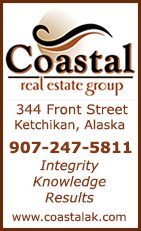
Governor Issues First COVID-19 Health MandateAlaska Legislature announces access to State Capitol limited to lawmakers, staff, and journalistsPosted & Edited By MARY KAUFFMAN March 13, 2020
The mandate suspends and limits general public visitation to the following state institutions until otherwise rescinded by DHSS and the Office of the Governor: Suspended Visitation
Limited Visitation
Additionally, public school days between March 16, 2020 and March 30, 2020 will be non-student contact days in which students will not be attending school and all after school activities will be suspended. Alaska Governor Mike Dunleavy, with the Alaska Department of Health and Social Services (DHSS) announced March 12th Alaska’s first presumptive positive case of coronavirus disease 2019 (COVID-19). The patient is a foreign national who developed a fever and respiratory symptoms shortly after arriving in Anchorage on March 11. DHSS is coordinating closely with Alaska Regional Hospital where this individual was tested; strict infection control protocols were followed. This is a travel-associated case of COVID-19, not a case of community-acquired infection. “We do have our first case identified of the COVID-19 virus, which is not unusual given what’s been happening elsewhere with this pandemic. This is no surprise as this is something we in Alaska have been preparing for since January. We feel good about the protocols we have in place and will continue to work our protocols. We continue to work with the federal government, the CDC, other health professionals in this country, as well as fellow Governors to see what they’re doing in their states,” said Alaska Governor Mike Dunleavy. Dunleavy said, “Again, there is no reason to panic, no reason to get upset. We expect to have more cases as time goes on and Alaska is as prepared as any other state to take on this issue.” An individual associated with an Anchorage cargo flight tested positive for the novel coronavirus (COVID-19). According to the Alaska Department of Transportation, the patient is a foreign national who developed a fever and respiratory symptoms shortly after arriving in Anchorage March 11, 2020. The patient immediately contacted their physician and then went to Alaska Regional Hospital for testing. Quoting an Alaska Department of Transportation news release, cargo flights to Anchorage strictly adhere to guidelines set out by the U.S. Federal Aviation Administration and the U.S. Department of Health and Human Services. Cargo flights are completely separate from any passenger flights at ANC. Cargo crewmembers never come into contact with general passengers and they do not access the main terminal. Cargo crewmembers are cleared through U.S. Customs and Border Protection agents at ANC’s North Terminal. Cargo is not considered a health risk according to the Centers for Disease Control and Prevention (CDC). Currently there is no evidence to support transmission of COVID-19 associated with imported goods and there have not been any cases of COVID-19 in the United States associated with imported goods. We understand this news will be concerning to Alaskans, but we have expected Alaska would get the first case of COVID-19 and we have been diligently preparing for this possibility,” said Alaska’s Chief Medical Officer Dr. Anne Zink. “Alaska’s health emergency response system has been activated since late January and we have been working with federal, Tribal, state, local and health care partners to ensure we have strong systems in place to limit or prevent the spread of COVID-19.” The presumptive positive test result was reported by the Alaska State Public Health Laboratory in Anchorage, which has been able to test for COVID-19 since February 27, 2020. The sample is being sent to CDC for final confirmation, which is the current protocol for COVID-19 testing. The DHSS Section of Epidemiology has already begun identifying people who have had close contact with the individual. Those who have been exposed and are considered at risk will undergo self-quarantine for 14 days with public health supervision. The typical incubation period (time from infection to symptom onset) for COVID-19 is 2-14 days. State of Alaska epidemiologists have talked to the patient and were encouraged to learn that the patient had very limited contact with others, stayed isolated since symptoms started yesterday, and followed the appropriate recommendations. “Isolation of this ill patient and self-quarantine of anyone who has had close contact with this person are needed to prevent the spread of COVID-19 to others in the community,” said Alaska State Epidemiologist, Dr. Joe McLaughlin. “Like the flu, this novel coronavirus spreads primarily through respiratory droplets and close contact with an infected individual.” In response to the Governor's announcement of the first confirmed case yesterday, Alaska Senate President Cathy Giessel(R-Anchorage) an Advanced Nurse Practitioner, said “We will continue to do all we can to mitigate the spread of this virus. It’s critical Alaskans follow the expert advice of our Chief Medical Officer, Dr. Anne Zink: Wash your hands, practice social distancing, and do not touch your face. Following these simple steps will reduce the strain on our healthcare facilities and ensure our most vulnerable populations receive the care they need." “We appreciate the diligent work of Dr. Zink, Health Commissioner Crum and Governor Dunleavy and stand ready to support them," said Glessel. Glessel said, “The Legislature is continuing to diligently focus on our priority work of passing a balanced budget. We’re also working closely with the governor to ensure adequate additional funding to support the state’s emergency response.” Alaska Senate Democratic Leader Tom Begich (D-Anchorage) said, “Alaskans know how to pull together and get through challenging times. In 2018, Southcentral Alaska had a major earthquake which united us. We looked after our family, friends, and neighbors. We were safe and prevailed like Alaskans always do. We must continue the recommendations of Dr. Anne Zink and create social distances, continue washing our hands, and not touch our faces.” Alaska Speaker of the House Bryce Edgmon said in a prepared statement, “Alaskans are united in the effort to protect the health of our people as we respond to COVID-19. We’ll get through this together. Healthcare workers and policymakers prepared for today, and we’re ready to act to limit the spread of this disease. The Legislature recently formed a bipartisan emergency preparedness committee, which will announce additional measures to protect Alaskans by the end of this week.” Today, inresponse to the arrival of the novel coronavirus COVID-19 in Alaska, the Legislature today adopted a series of initial actions recommended by the newly formed Legislative Council Subcommittee on Emergency Response and Preparedness. Effective immediately, access to the State Capitol will be limited to lawmakers, employees of the Legislature, members of the governor’s administration, and credentialed journalists. Legislative work will continue as normal, and Alaskans will be able to participate fully in the public process by following along on Gavel Alaska, AKL.tv, and through written and telephonic testimony. The Legislature also enacted a temporary ban on state-sponsored travel by lawmakers and legislative employees. Additionally, anyone with access to the Capitol who travels out-of-state on personal business will be advised not to re-enter the building for at least seven days upon returning. Members of the subcommittee also established protocols for what will occur if someone with access to the Capitol tests positive for COVID-19, which will be guided by advice from the Department of Health and Social Services and the Centers for Disease Control. Quoting a joint news release from the Alaska State Legislature, these unprecedented steps are temporary but necessary to protect the health and safety of Alaskans and ensure the Legislature is able to finalize budgets and other important matters. “To protect Alaskans and ensure the people’s business continues in a timely and transparent manner, the Legislature has acted to limit the spread of the virus,” said Sen. Gary Stevens (R-Kodiak), chair of the Legislative Council Subcommittee on Emergency Response and Preparedness. “After several lengthy discussions, and in accordance with CDC guidelines, we will reduce interpersonal contact in the Capitol to limit exposure to the new coronavirus.” “Alaskans elected us to lead, and that’s what we’re doing,” House Speaker Bryce Edgmon (I-Dillingham) said. “We’re committed to continuing our legislative work, which includes making sure healthcare workers have the tools they need to slow the spread of COVID-19. We will work closely with our local and federal partners to monitor the progress of this disease and to make sure supply chains continue to provide essential goods to communities across our state. The session will continue to broadcast on Gavel Alaska and AKL.tv so the public is up to date on our work to keep Alaskans safe.” “The Alaska Legislature has always been a leader and innovator in technology that allows Alaskans to participate remotely in public meetings,” Alaska House Minority Leader Lance Pruitt (R-Anchorage) said. “We will complete the process we have begun in a manner that allows maximum public participation while following CDC guidelines.” “A few precautionary steps will help mitigate the spread of this disease,” Senate President Cathy Giessel (R-Anchorage) said. “We want to reduce the strain on our healthcare facilities to ensure our most vulnerable Alaskans receive the care they need, and continue the important work of passing a balanced budget for the people of Alaska.” The Alaska Legislature on Wednesday approved supplemental funding to combat the spread of COVID-19.
On the Web:
Edited By Mary Kauffman, SitNews
Source of News:
|
||||



